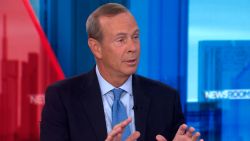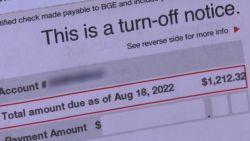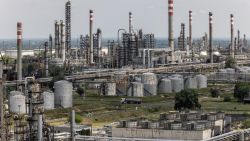Oil prices fell sharply on Monday as new lockdowns across Europe and record coronavirus cases in the United States slammed the outlook for energy demand.
Brent crude, the global benchmark, fell as much as 5% in early trading in Asia, touching levels last seen in May, before paring losses to trade2.3% lower at $37.07 a barrel. West Texas Intermediate, the US benchmark, was down 2.7% at $34.82 a barrel.
Brent crude, which briefly plunged below $20 in April,is close to bear market territory again, having dropped by about $9, or nearly 20% from its August 25 peak of $45.86 a barrel.
Decisions by European governments to impose another round of severe coronavirus restrictions is weighing on sentiment. France, Germany and Belgium are going back into nationwide lockdowns, shutting restaurants and non-essential businesses for several weeks and restricting travel. In the United Kingdom, authorities are introducing a lockdown in England that is scheduled to run through December 2.
These four countries consume the equivalent of a little over 6% of global consumption, “so no surprise that we are seeing the market reacting this morning,” ING’s head of commodities strategy Warren Patterson and senior commodities strategist Wenyu Yao wrote in a research note on Monday.
Economists fear that Europe’s economy could contract in the fourth quarter, raising fears of another recession. Despite record GDP growth in the third quarter, the EU economy remains about 4% smaller than it was at the end of September last year.
The collapse in global aviation earlier this year dealt a huge blow to oil demand, and the resurgence of the coronavirus is dashing airlines’ hopes of a recovery.
Ryanair (RYAAY), Europe’s largestcarrier by passengers, said Monday it was further reducing its winter schedule, cutting capacity between November and March to “at most” 40% compared with the same period last year.That’s down fromits previous forecast of 60%.The airline warned that its losses in the second half of the fiscal year through March 2021 would be worse than in the first half.
There are also worries that governments elsewhere will be forced to reimpose restrictions heading into the holiday season. The United States recorded 81,493 new coronavirus cases on Sunday, after reporting 99,321 on Friday, the highest single day number of cases for any country, according to Johns Hopkins University. The US death toll from Covid-19 now stands at more than 230,995, the highest number of fatalities worldwide.
“Fresh worries that politicians worldwide will be pressured to lock down Christmas this year is hitting the oil markets like a ton of bricks,” Stephen Innes, chief global markets strategist at Axi said in a research note. “The alarmingly high level of angst in the markets makes it easy for the oil roller coaster to crest rally peaks and head downhill at alarmingly quick speeds,” he added.
Pressure on OPEC
Oil traders are also increasingly concerned about excess supply, with inventories still high and production rising in some places.
The market has been “caught off guard” by the extent to which supply from Libya has come back online, Innes said. Following a ceasefire in late September between two warring factions, exports from the country increased from 100,000 barrels a day to 800,000 barrels currently, according to Innes.
And Iranian exports could increase if Joe Biden wins this week’s US presidential election and scraps Trump’s sanctions against the country in order to revivethe Iranian nuclear deal, Morgan Stanley analysts said in a note Friday.
The analysts expect OPEC and its allies will delay “by several months” existing plans to increase production by 2 million barrels a day in January.
The group of oil producers,including Russia,is due to meet at the end of this month. “If this downward pressure on the market continues, there is nothing ruling out the group having an emergency meeting to try calm market fears,” said ING’s Patterson and Yao, who expect the group to extend production cuts into next year.


























